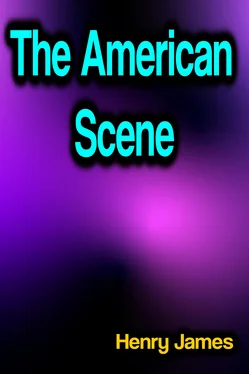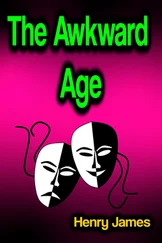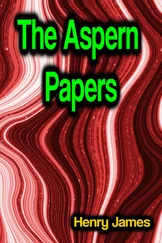Henry James - The American Scene
Здесь есть возможность читать онлайн «Henry James - The American Scene» — ознакомительный отрывок электронной книги совершенно бесплатно, а после прочтения отрывка купить полную версию. В некоторых случаях можно слушать аудио, скачать через торрент в формате fb2 и присутствует краткое содержание. Жанр: unrecognised, на английском языке. Описание произведения, (предисловие) а так же отзывы посетителей доступны на портале библиотеки ЛибКат.
- Название:The American Scene
- Автор:
- Жанр:
- Год:неизвестен
- ISBN:нет данных
- Рейтинг книги:3 / 5. Голосов: 1
-
Избранное:Добавить в избранное
- Отзывы:
-
Ваша оценка:
- 60
- 1
- 2
- 3
- 4
- 5
The American Scene: краткое содержание, описание и аннотация
Предлагаем к чтению аннотацию, описание, краткое содержание или предисловие (зависит от того, что написал сам автор книги «The American Scene»). Если вы не нашли необходимую информацию о книге — напишите в комментариях, мы постараемся отыскать её.
The American Scene — читать онлайн ознакомительный отрывок
Ниже представлен текст книги, разбитый по страницам. Система сохранения места последней прочитанной страницы, позволяет с удобством читать онлайн бесплатно книгу «The American Scene», без необходимости каждый раз заново искать на чём Вы остановились. Поставьте закладку, и сможете в любой момент перейти на страницу, на которой закончили чтение.
Интервал:
Закладка:
The after-sense of that acute experience, however, I myself found, was by no means to be brushed away; I felt it grow and grow, on the contrary, wherever I turned: other impressions might come and go, but this affirmed claim of the alien, however immeasurably alien, to share in one's supreme relation was everywhere the fixed clement, the reminder not to be dodged. One's supreme relation, as one had always put it, was one's relation to one's country—a conception made up so largely of one's countrymen and one's countrywomen. Thus it was as if, all the while, with such a fond tradition of what these products predominantly were, the idea of the country itself underwent something of that profane overhauling through which it appears to suffer the indignity of change. Is not our instinct in this matter, in general, essentially the safe one—that of keeping the idea simple and strong and continuous, so that it shall be perfectly sound? To touch it overmuch, to pull it about, is to put it in peril of weakening; yet on this free assault upon it, this readjustment of it in their monstrous, presumptuous interest, the aliens, in New York, seemed perpetually to insist. The combination there of their quantity and their quality—that loud primary stage of alienism which New York most offers to sight—operates, for the native, as their note of settled possession, something they have nobody to thank for; so that unsettled possession is what we, on our side, seem reduced to—the implication of which, in its turn, is that, to recover confidence and regain lost ground, we, not they, must make the surrender and accept the orientation. We must go, in other words, more than half-way to meet them; which is all the difference, for us, between possession and dispossession. This sense of dispossession, to be brief about it, haunted me so, I was to feel, in the New York streets and in the packed trajectiles to which one clingingly appeals from the streets, just as one tumbles back into the streets in appalled reaction from them, that the art of beguiling or duping it became an art to be cultivated—though the fond alternative vision was never long to be obscured, the imagination, exasperated to envy, of the ideal, in the order in question; of the luxury of some such close and sweet and whole national consciousness as that of the Switzer and the Scot.
Chapter
2
My recovery of impressions, after a short interval, yet with their flush a little faded, may have been judged to involve itself with excursions of memory—memory directed to the antecedent time—reckless almost to extravagance. But I recall them to-day, none the less, for that value in them which ministered, at happy moments, to an artful evasion of the actual. There was no escape from the ubiquitous alien into the future, or even into the present; there was an escape but into the past. I count as quite a triumph in this interest an unbroken ease of frequentation of that ancient end of Fifth Avenue to the whole neighbourhood of which one's earlier vibrations, a very far-away matter now, were attuned. The precious stretch of space between Washington Square and Fourteenth Street had a value, had even a charm, for the revisiting spirit—a mild and melancholy glamour which I am conscious of the difficulty of "rendering" for new and heedless generations. Here again the assault of suggestion is too great; too large, I mean, the number of hares started, before the pursuing imagination, the quickened memory, by this fact of the felt moral and social value of this comparatively unimpaired morsel of the Fifth Avenue heritage. Its reference to a pleasanter, easier, hazier past is absolutely comparative, just as the past in question itself enjoys as such the merest courtesy-title. It is all recent history enough, by the measure of the whole, and there are flaws and defacements enough, surely, even in its appearance of decency of duration. The tall building, grossly tall and grossly ugly, has failed of an admirable chance of distinguished consideration for it, and the dignity of many of its peaceful fronts has succumbed to the presence of those industries whose foremost need is to make "a good thing" of them. The good thing is doubtless being made, and yet this lower end of the once agreeable street still just escapes being a wholly bad thing. What held the fancy in thrall, however, as I say, was the admonition, proceeding from all the facts, that values of this romantic order are at best, anywhere, strangely relative. It was an extraordinary statement on the subject of New York that the space between Fourteenth Street and Washington Square should count for "tone," figure as the old ivory of an overscored tablet.
True wisdom, I found, was to let it, to make it, so count and figure as much as it would, and charming assistance came for this, I also found, from the young good-nature of May and June. There had been neither assistance nor good-nature during the grim weeks of mid-winter; there had been but the meagre fact of a discomfort and an ugliness less formidable here than elsewhere. When, toward the top of the town, circulation, alimentation, recreation, every art of existence, gave way before the full onset of winter, when the upper avenues had become as so many congested bottle-necks, through which the wine of life simply refused to be decanted, getting back to these latitudes resembled really a return from the North Pole to the Temperate Zone: it was as if the wine of life had been poured for you, in advance, into some pleasant old punch-bowl that would support you through the temporary stress. Your condition was not reduced to the endless vista of a clogged tube, of a thoroughfare occupied as to the narrow central ridge with trolley-cars stuffed to suffocation, and as to the mere margin, on either side, with snow-banks resulting from the cleared rails and offering themselves as a field for all remaining action. Free existence and good manners, in New York, are too much brought down to a bare rigour of marginal relation to the endless electric coil, the monstrous chain that winds round the general neck and body, the general middle and legs, very much as the boa-constrictor winds round the group of the Laocoon. It struck me that when these folds are tightened in the terrible stricture of the snow-smothered months of the year, the New York predicament leaves far behind the anguish represented in the Vatican figures. To come and go where East Eleventh Street, where West Tenth, opened their kind short arms was at least to keep clear of the awful hug of the serpent. And this was a grace that grew large, as I have hinted, with the approach of summer, and that made in the afternoons of May and of the first half of June, above all, an insidious appeal. There, I repeat, was the delicacy, there the mystery, there the wonder, in especial, of the unquenchable intensity of the impressions received in childhood. They are made then once for all, be their intrinsic beauty, interest, importance, small or great; the stamp is indelible and never wholly fades. This in fact gives it an importance when a lifetime has intervened. I found myself intimately recognizing every house my officious tenth year had, in the way of imagined adventure, introduced to me—incomparable master of ceremonies after all; the privilege had been offered since to millions of other objects that had made nothing of it, that had gone as they came; so that here were Fifth Avenue corners with which one's connection was fairly exquisite. The lowered light of the days' ends of early summer became them, moreover, exceedingly, and they fell, for the quiet northward perspective, into a dozen delicacies of composition and tone.
One could talk of "quietness" now, for the shrinkage of life so marked, in the higher latitudes of the town, after Easter, the visible early flight of that "society" which, by the old custom, used never to budge before June or July, had almost the effect of clearing some of the streets, and indeed of suggesting that a truly clear New York might have an unsuspected charm or two to put forth. An approach to peace and harmony might have been, in a manner, promised, and the sense of other days took advantage of it to steal abroad with a ghostly tread. It kept meeting, half the time, to its discomfiture, the lamentable little Arch of Triumph which bestrides these beginnings of Washington Square—lamentable because of its poor and lonely and unsupported and unaffiliated state. With this melancholy monument it could make no terms at all, but turned its back to the strange sight as often as possible, helping itself thereby, moreover, to do a little of the pretending required, no doubt, by the fond theory that nothing hereabouts was changed. Nothing was, it could occasionally appear to me—there was no new note in the picture, not one, for instance, when I paused before a low house in a small row on the south side of Waverley Place and lived again into the queer medieval costume (preserved by the daguerreotypist's art) of the very little boy for whom the scene had once embodied the pangs and pleasures of a dame's small school. The dame must have been Irish, by her name, and the Irish tradition, only intensified and coarsened, seemed still to possess the place, the fact of survival, the sturdy sameness, of which arrested me, again and again, to fascination. The shabby red house, with its mere two storeys, its lowly "stoop," its dislocated ironwork of the forties, the early fifties, the record, in its face, of blistering summers and of the long stages of the loss of self-respect, made it as consummate a morsel of the old liquor-scented, heated-looking city, the city of no pavements, but of such a plenty of politics, as I could have desired. And neighbouring Sixth Avenue, overstraddled though it might be with feats of engineering unknown to the primitive age that otherwise so persisted, wanted only, to carry off the illusion, the warm smell of the bakery on the corner of Eighth Street, a blessed repository of doughnuts, cookies, cream-cakes and pies, the slow passing by which, on returns from school, must have had much in common with the experience of the shipmen of old who came, in long voyages, while they tacked and hung back, upon those belts of ocean that are haunted with the balm and spice of tropic islands.
Читать дальшеИнтервал:
Закладка:
Похожие книги на «The American Scene»
Представляем Вашему вниманию похожие книги на «The American Scene» списком для выбора. Мы отобрали схожую по названию и смыслу литературу в надежде предоставить читателям больше вариантов отыскать новые, интересные, ещё непрочитанные произведения.
Обсуждение, отзывы о книге «The American Scene» и просто собственные мнения читателей. Оставьте ваши комментарии, напишите, что Вы думаете о произведении, его смысле или главных героях. Укажите что конкретно понравилось, а что нет, и почему Вы так считаете.












